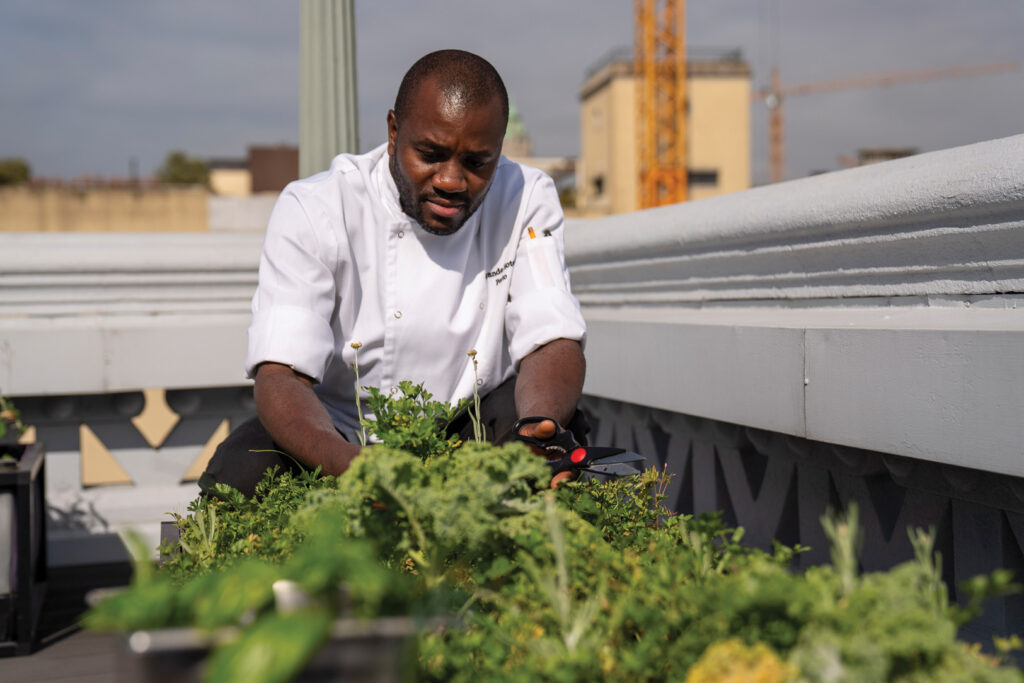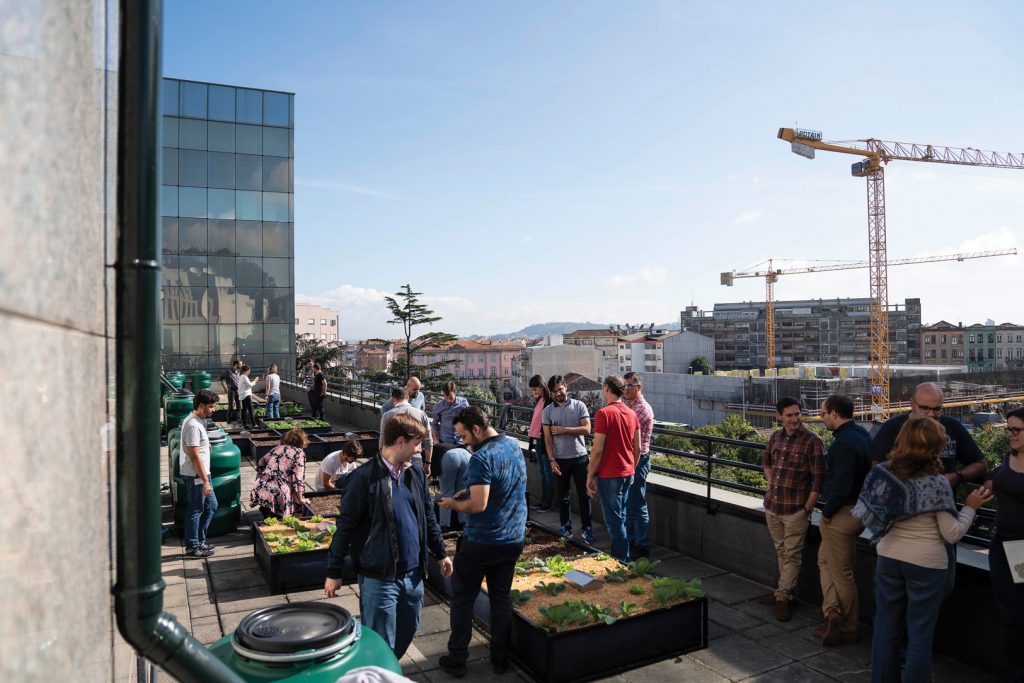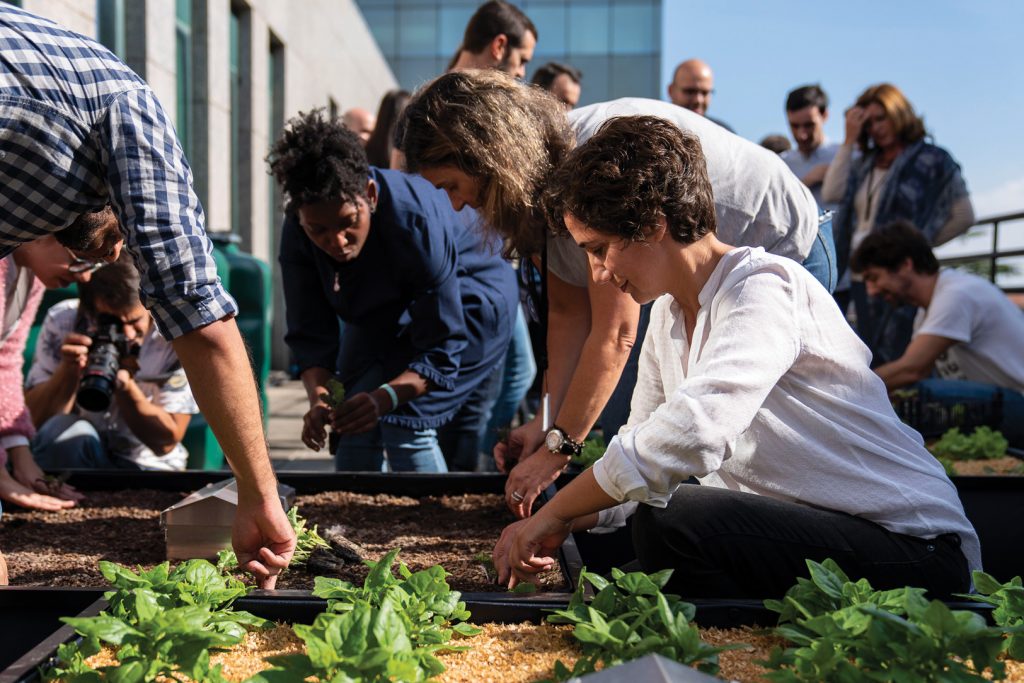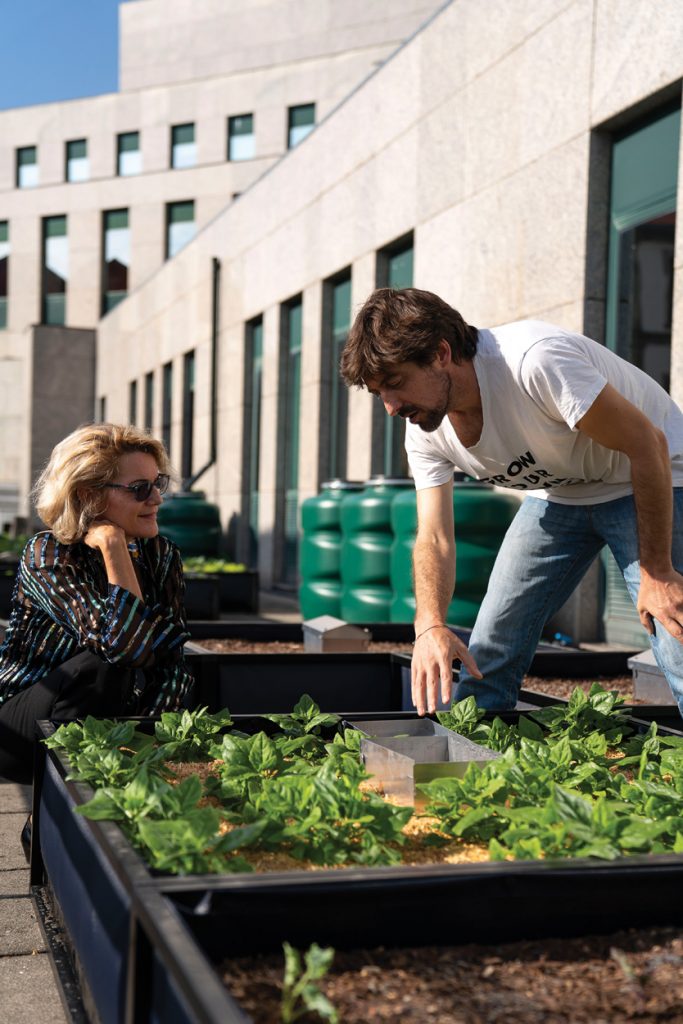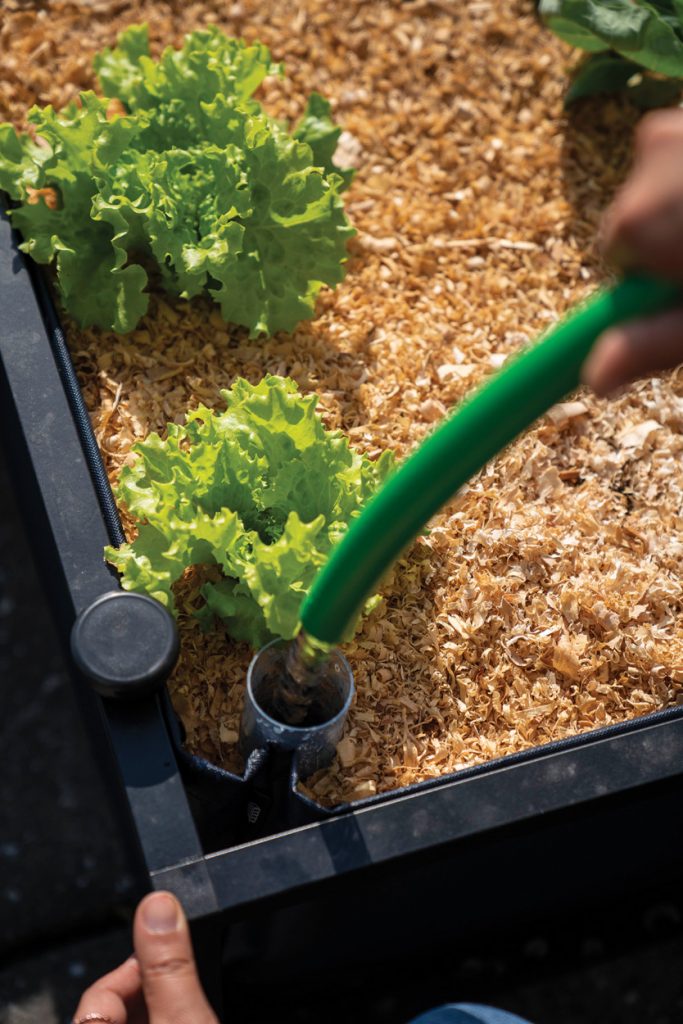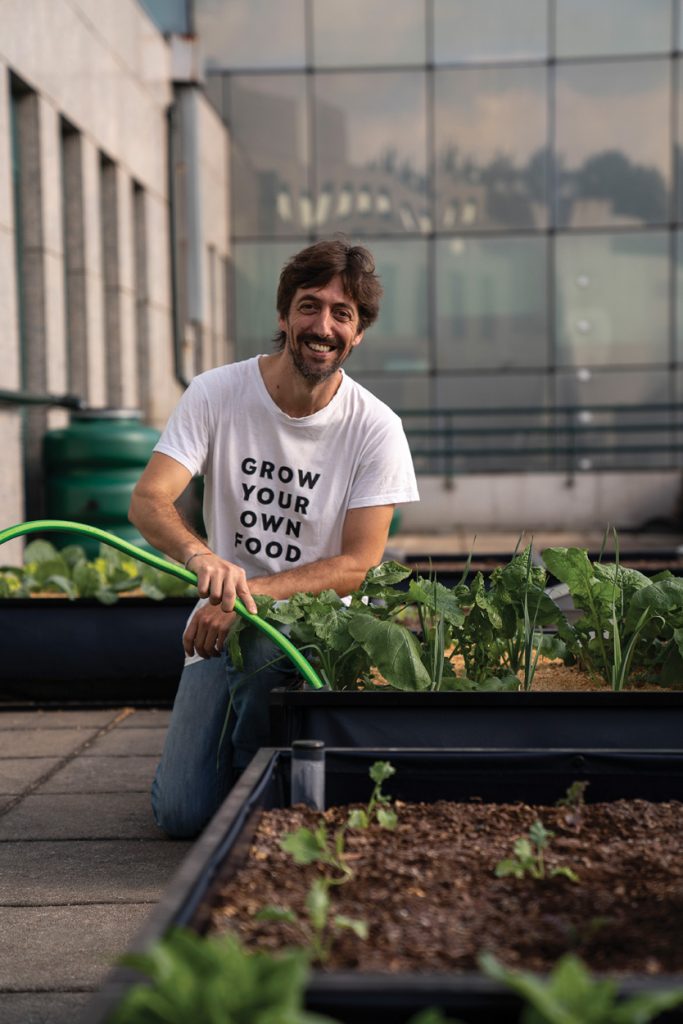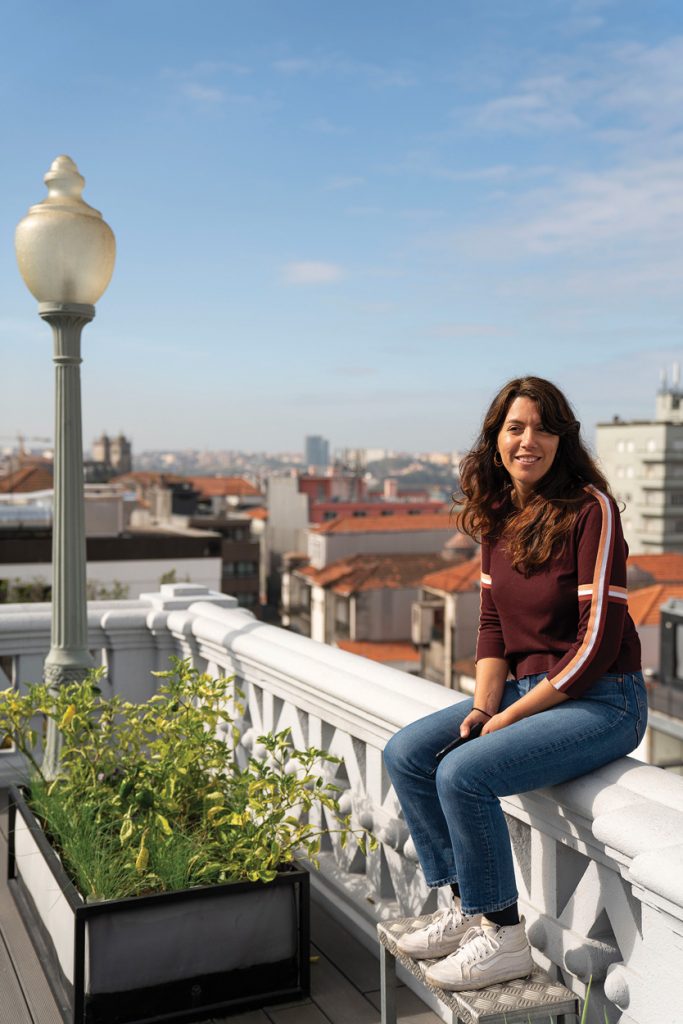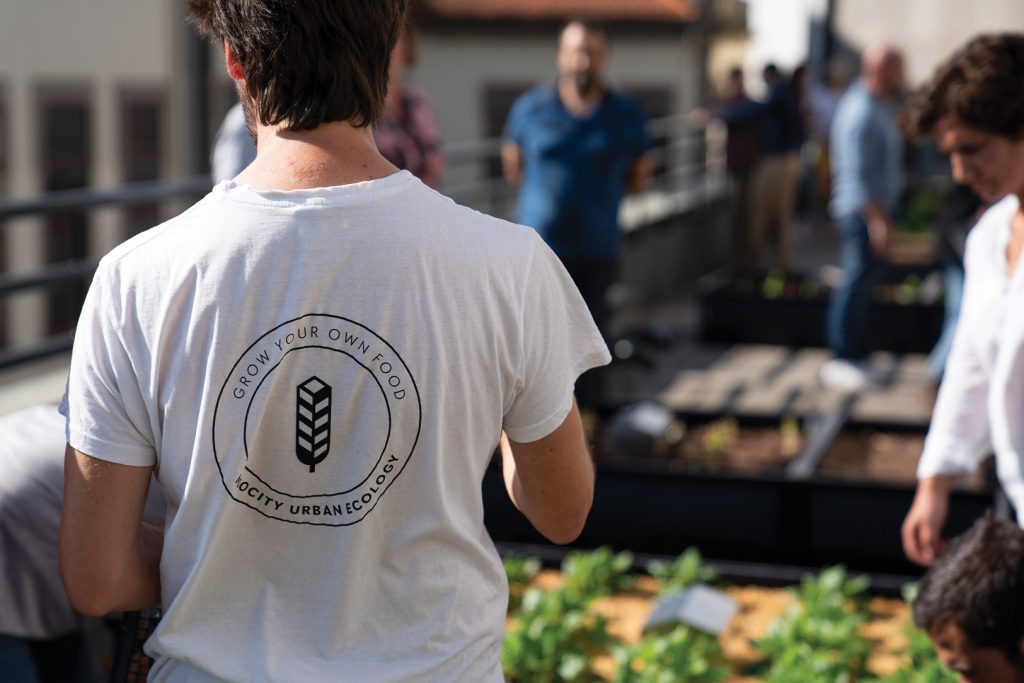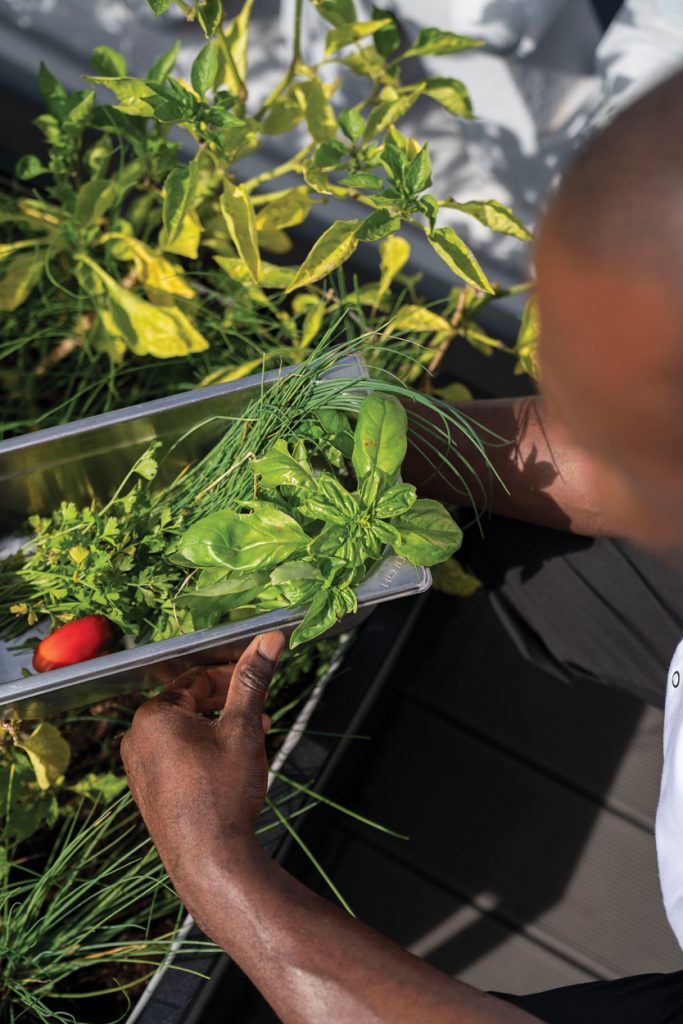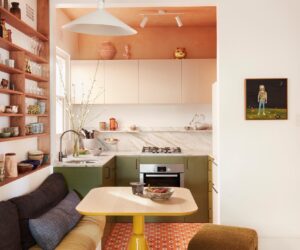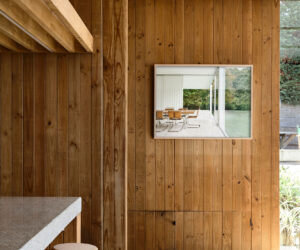Appetite for Life
An inventive urban gardening community in Portugal is creating self-watering garden beds that arrive flat-packed by post.
“We want to make growing food easy for people in the city, even if it’s just a carrot or some tomatoes,” explains Leonor Babo, one part of urban gardening business, Noocity Urban Ecology (pronounced “new-city”). They flat-pack self-watering gardens (wicking beds) out of Porto in Portugal, which can be shipped all over Europe by post.
These urban garden boxes (or “Growbeds”) encourage people to grow their own herbs and vegetables in small spaces, courtyards and apartment balconies in cities. “It’s about the experience, getting your hands dirty, enjoying nature. We don’t get enough of that in the city.” In the last six years, their system has become popular not only across Portugal, but also in France, Belgium, Denmark, Switzerland and the UK – in densely populated cities where most people live in apartments and don’t have back gardens, or space for a veggie patch.
In Porto (their HQ), Thai basil, kale, lettuces and sweet potatoes sprout from the rooftops of venues across the city: hotels, restaurant kitchen gardens and corporate workplaces. It’s part of a broader trend towards huge urban revitalisation in Porto.
Noocity began like many start-ups, just after the financial crisis that forced people to become more entrepreneurial. In spring 2013, three friends, José Ruivo, Pedro Monteiro and Samuel Rodrigues (with backgrounds in architecture, engineering and permaculture), were working together in a cooperative in Porto’s city centre, and decided to set up a small edible garden in the cement backyard. By summer, the once unused space had turned into a productive green garden, full of vegetables, fruit and herbs. They wondered if this concept could be a fully-fledged business.
They trialled and tested their Growbed concept; a subirrigation system made of aluminium and a textile deposit, built with food-grade PVC board. Their plan was to sell Growbeds with potting soil and expandable clay that would, in total, weigh between eight and 13 kilograms to post. The benefits of this self-watering system include reducing runoff, less labour involved, less water and fertiliser needed and more uniform plant growth. A simple solution to the challenges of growing food in cities.
n 2015, things started to gain more momentum when Leonor joined as a co-founder to create the brand’s visual communications. “In 2015 we launched the Noocity Growbed through a successful crowdfunding campaign on Indiegogo and delivered the first product,” says Leonor. “It was really well received and we exceeded our predicted revenue raising targets. It showed us there was an appetite for urban gardening.”
In July this year, Noocity received a large amount of funding from a Portuguese investment company, Protocol Ventures, supported by the European Union. In a time when investment so often goes to software/tech companies, this support will allow them to expand their hardware and their team, developing new products (like greenhouses and rainwater catchments) and creating a network of “growers” who can help install and maintain Growbeds across Europe. The funding will mean the business can also develop its education arm both online (video content) and offline (public workshops) to teach people about growing seasonal produce. Noocity is currently working with the local council garbage collection service in Porto on a project that incentivises the idea of composting, giving away free bins to those who attend composting workshops.
“You may not be able to survive solely from this kind of gardening … you will always have to buy some of your groceries from the store. But growing your own food connects you to the process: it makes you think about where things come from and how long they take to grow,” explains Leonor. “It helps people understand that to produce something you need time and dedication, even in small spaces.”
